Rural: The Lives of the Working Class Countryside review
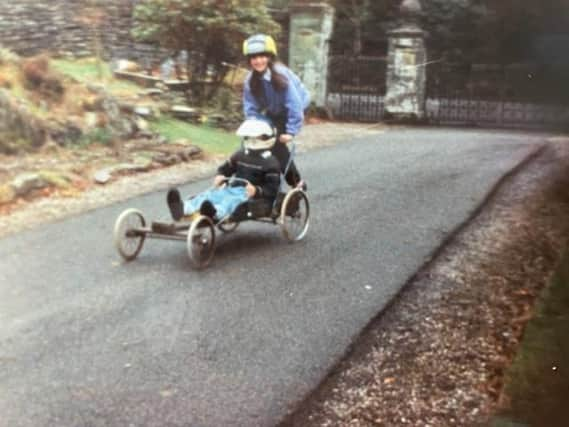

As someone who grew up in rural areas of the UK, so much of this book felt like home.
I cannot say that on behalf of everyone who lives in the countryside because, as Rural: The Lives of the Working Class Countryside so accurately points out, the landscape holds a complex tapestry of stories, from crofters to country estate owners, foresters to pub owners, each with their own history.
Advertisement
Hide AdAdvertisement
Hide AdWith the extensive research the author Rebecca Smith has done, illustrated by face-to-face conversations, there is, however, something that anyone who has either lived in or had a connection to life “out in the sticks” will relate to in this book.
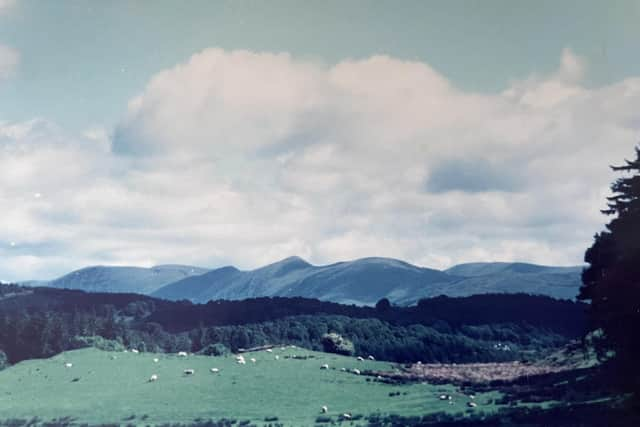

And what is refreshing is Smith’s honest and respectful approach to narrating the different stories that are often inextricably linked to controversial issues that come with living in the countryside, such as land ownership, development, and class disparity.
These topics are often addressed in a polarised fashion, but the author’s understanding of the land, innate curiosity of people that live off it, and emotional connection to it makes her book an educational and moving read that I believe no matter where you fit in society, you can enjoy.
But most importantly, her work is a voice for working class people in rural communities from the past to the present day whose voices have so often been overlooked.
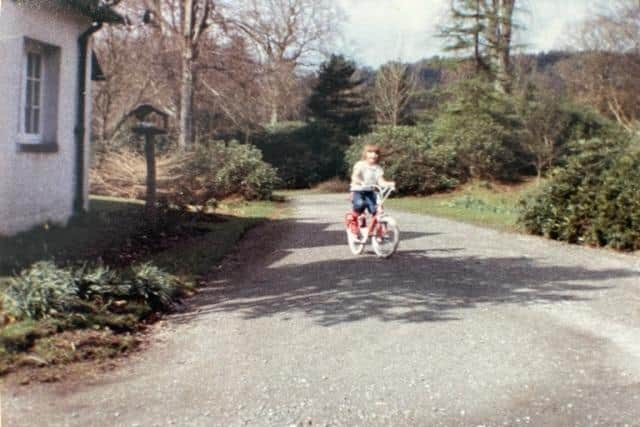

Smith, whose father was a forester on several country estates, grew up with her family in tied-houses around the UK – a home a family or person is provided by their employer.
Despite the term being unknown to many and rarely used now, her book makes you realise the vast network of people in rural areas connected to this working class way of life.
Though, in a chat with her, she was quick to add that growing up, she didn’t feel working class. “Living in the footsteps of the rich”, as she put it, with access to space and nature almost made her feel class-less.
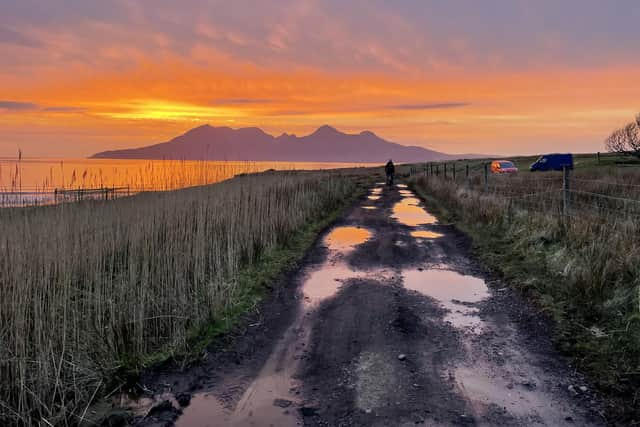

With immense fondness, she describes growing up playing with other estate workers’ kids, building dens in rhododendron bushes and hailing down the local fish van who would deliver to rural areas – detail that I imagine will make any country folk reading this sigh ‘aye, I remember doing that too.’
Advertisement
Hide AdAdvertisement
Hide AdBut Smith also doesn’t shy away from addressing the sharp contrast between her upbringing and the lives of those in “the Big house”, who actually owned their home, and whose children would likely be off at boarding school rather than playing in the grounds with the local kids.
On the one hand the author notes these country estates would hold vibrant, connected communities, with employees including foresters and gamekeepers whose children would fill up the local schools. But then she also celebrates the communities such as the historic Assynt Crofter’s Trust who made history by “rattling” landlords and taking ownership of the land whose community members had been living and working off the land for centuries. These are just two examples to show the depths she goes to to study the lives of working class people in rural Britain.
For those who aren’t so tethered to the land, however, Smith beautifully stitches together the beauty, tragedy and comedy that underpins rural communities today making her book a fascinating history lesson.
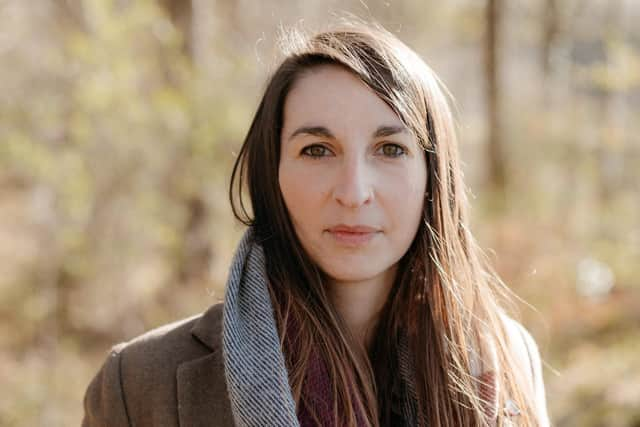

Separating her work into different themes, including chapters on land, wood, textiles, water, and tourism, her work offers a rich insight into the expanse of the UK’s industry built from the nation’s natural resources.
She brings this alive by describing her trips to places around the UK to research these industries, including skimming some of the glittering Easdale slate that “roofed the world” across glass like pools on the Oban coast, to visiting the industrious Longannet in Fife, once the largest coal-red power station in Europe.
And of course she doesn’t hold back explaining how these industries only survived off the backbreaking work of the working classes, sometimes with tragic outcomes.
Smith dives into the mining stories, including the Redding pit disaster in 1923, near Falkirk, that killed some 40 men, devastating an entire community. And lesser known stories, including the tragic life of the child female miner whose name, Elizabeth Dickson, is memorialised on a street name that many pass under today in East Lothian.
And, although she appreciates the dramatic beauty of some country estate rural architecture, Smith is not afraid to reveal the darker underbelly of some of these grand stately homes and their explicit connections with slavery, including Scotland’s Muiravonside.
Advertisement
Hide AdAdvertisement
Hide AdIt wouldn’t be a story about working class rural life if there wasn’t some humour, which Smith elegantly folds in throughout her work.
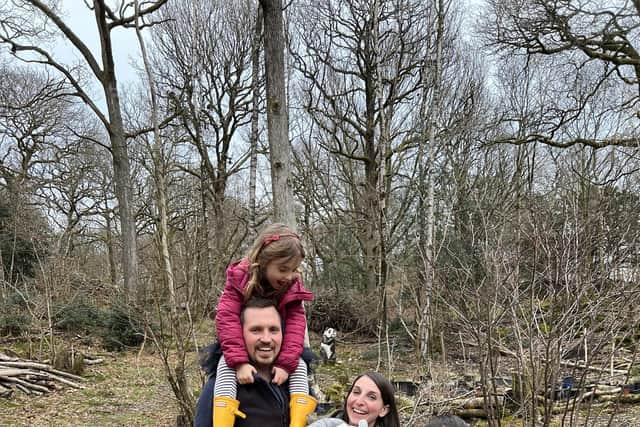

Whether she’s talking about the time her pet bunny Sherbert was paid £80 a day to play Peter Rabbit in a BBC adaptation of Beatrix Potter books while she was living in the Lake District, or when she revisited the caves in the region’s Coniston where local lad “Steely D” would host thousands of people at literal underground raves in the 90s, there are many moments in her book that prompt a smile.
Smith, who was heavily pregnant with her now 18-month-year-old son Rory during some of her research for this book, made many of her trips with her partner Phil and two young children, Ellis and Jessie.
She regularly makes references to her children’s reactions to the places she is revisiting which, in some ways, adds to the wonder of some of the stories she’s telling.
A catch up with Rebecca Smith:
KH: What inspired you to write this book?
RS: A few years ago there was a push for more working class voices in literature which was brilliant. I read some, which were great, but I didn’t recognise myself in them at all. I wanted to explain what it was like growing up for me, for my family, in rural communities. What was odd about writing about where I came from, living on a country estate, is that you’re sort of in the footsteps of the upper classes. It does feel like a weird contradiction. We are working class and we don’t own anything but you have access to all this nature and space. So that’s what inspired the book.
KH: What do you feel you’ve uncovered?
RS: Many stories that have never been told before. Some go back to 200 years where records just weren’t kept of some people’s lives. A few people I have spoken to who know of the book said thank you for giving them a voice. It sounds like a cliche, but it’s apparent that there aren’t enough stories out there saying what it’s like for rural, working class families. A lot of people think that living in the countryside, you’re either posh or farmers. But it’s far from it. You have every type of job or business and type of person. We just don’t see it as much in the media, and I wanted to talk about it.
KH: Can you give me an example?
RS: My dad worked as a forester, and a lot of people in the forestry community feel their stories aren’t shared. It’s such an important industry, and it will continue to be so, but foresters don’t get spoken to. Often if forestry is in the national conversation, some sort of expert or a rewilding campaigner is spoken to, but the people who actually work on the land or live on it get bypassed. Often it’s people on the land who are experts themselves, they just aren’t considered it.
KH: Are we losing some of the culture that comes with rural life because of the AirBnB boom and second home culture?
Advertisement
Hide AdAdvertisement
Hide AdRS: I think tourism is really important for the rural economy, but what research for the book has backed up is there can be too much tourism. When there’s too much tourism there’s little room for people to actually live in places, which then makes it difficult for local people to run things like the pantomime or the county fair, the things that make up that place being the place that it is and why people want to go there. There are communities that are working to fix that though, which is encouraging.
KH: Do you have hope for the countryside amid fears of depopulation?
RS: Yes. There are some great examples of people coming together to protect some of these rural communities. For example community buyouts like on the Isle of Eigg where they have the clause that when you buy a house, it cannot be sold to someone who doesn’t live there. I do think it will get better. I think it’s so important for people to live in the countryside to understand nature. I don’t want to get into the access laws, for example in England where they don’t have right to roam. It’s so complicated, and I can totally se both sides, but it’s really important, especially for people who have grown up in the countryside, to be able to live where they grew up, where your family are from.